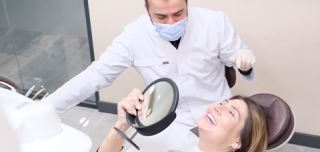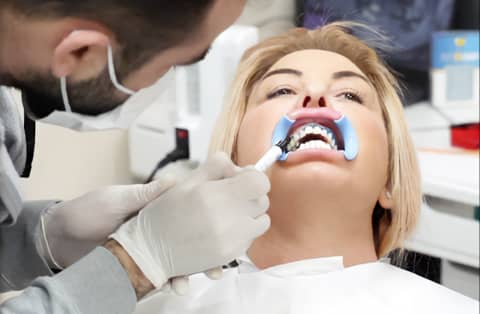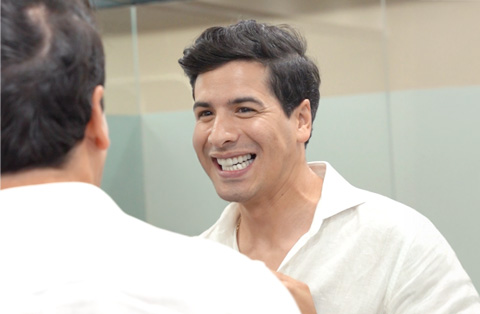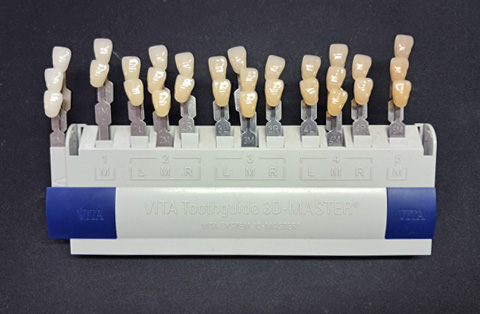An open, confident smile is a powerful communication tool. It radiates warmth, friendliness, and positivity. But what if you’re hesitant to smile because of an anterior open bite?
This orthodontic condition can affect not only your appearance but also your ability to speak, eat, and sometimes even breathe correctly. The good news is, medical advancements have led to solutions like anterior open bite surgery, which can significantly improve your oral functionality and enhance your confidence.
In this article, we’ll delve into the details of anterior open bite, its implications, and the corrective procedures available.
What is an open bite?
An open bite refers to a condition where the upper and lower teeth do not meet when the mouth is closed, leading to a space or gap between the teeth. The condition can be categorized into anterior and posterior open bites.
An anterior open bite, our main focus, is when there’s a noticeable gap between your upper and lower front teeth while your back teeth are clenched together. This can cause difficulty biting into foods, speaking, and may impact your overall appearance.
Signs and Symptoms of Open Bite
Several signs and symptoms could suggest that you have an open bite. These include:
- Difficulty biting into foods without your front teeth
- Speech problems, like lisping
- Appearance of a gap between your upper and lower front teeth when your mouth is closed
- Breathing through the mouth instead of the nose
- Jaw pain due to uneven pressure distribution when biting
Types of Open Bites
“There are two types of open bite, anterior and posterior. Anterior open bite is more common and occurs in 1.5% to 11% of open bite cases; the percentage varies among ethnicity and age.”
Reference: Mostafa YA. Open bite malocclusion: Analysis of the underlying components.
Anterior Open Bite
An Anterior Open Bite (AOB) is a type of malocclusion where the front teeth, both upper and lower, do not touch when the mouth is closed. This leaves a gap or an opening, often making it difficult to bite into thin objects such as a slice of cheese or apple. While this condition can sometimes be genetic, it’s also commonly associated with habits like thumb sucking or prolonged pacifier use during childhood, tongue thrusting, or jaw misalignment.
If not treated early, an anterior open bite can result in speech problems such as lisping and can also affect facial aesthetics.
Posterior Open Bite
A Posterior Open Bite refers to the condition where the back teeth (molars and premolars) don’t make contact when the jaw is closed, leaving a space between the upper and lower sets of teeth. This type of open bite can be a result of various factors such as abnormal growth of the jawbone, thumb sucking, or other oral habits. A posterior open bite can lead to difficulties in chewing and may put undue pressure on the front teeth, potentially leading to premature wear.
Moreover, like an anterior open bite, this condition might impact speech and the overall appearance of the individual.
Open Bite Causes
The causes of an open bite are often multi-factorial. They include:
- Genetic predisposition
- Prolonged thumb or pacifier sucking
- Chronic tongue thrusting
- Temporomandibular joint disorders (TMJ)
- Jaw growth abnormalities
Open Bite Treatments
Treatment options for open bite range from orthodontic appliances like braces and retainers to surgical interventions. The choice depends on the severity of the open bite and the patient’s age, overall health, and personal preferences.
Related Treatments:
How Does Orthognathic Surgery Correct Open Bite?
Orthognathic surgery, also known as corrective jaw surgery, can be a highly effective solution for severe open bite cases. It involves repositioning the upper jaw, lower jaw, or both to ensure that the teeth meet correctly. This helps improve biting and chewing functionality, speech, and appearance.
What Happens If I Don’t Treat My Open Bite?
Leaving an open bite untreated can lead to several problems over time. These include difficulty in biting and chewing, speech issues, breathing problems, jaw pain, and self-esteem issues due to the gap between the front teeth. An untreated open bite can also worsen over time.
How Do I Know If I Need Jaw Surgery for Open Bite?
A thorough evaluation by an experienced orthodontist or oral surgeon can help determine whether you need jaw surgery to correct an open bite. They would assess the severity of your condition, the impact on your life, your overall health, and discuss your personal goals and preferences.
What Happens After My Jaw Surgery?
Post-surgery, you might experience some swelling and discomfort, which are manageable with prescribed medications. A specific diet and oral hygiene routine may also be recommended. Regular follow-ups with your surgeon are critical to monitor your recovery and ensure the best outcome.
Frequently Asked Questions:
Can anterior open bite be fixed?
Yes, anterior open bite can be fixed through orthodontic treatment or surgery, depending on its severity.
Can an open bite cause TMJ pain?
Yes, an open bite can contribute to TMJ disorders, leading to jaw pain and discomfort.
Will the surgery change my appearance?
Yes, correcting an open bite through jaw surgery in Turkey can change your facial appearance, often enhancing the profile and improving aesthetics.
Will jaw surgery change my voice?
In most cases, jaw surgery does not affect the voice. However, some changes in resonance might be noticed initially after surgery, which usually resolves with time.
How long will it take to recover from jaw surgery?
Recovery times vary among individuals but typically range from a few weeks to a few months.
Will my jaw be wired shut after orthognathic surgery?
In most cases, the jaw isn’t wired shut after surgery. However, your surgeon might use rubber bands to guide your jaw into the correct position.
When can I open my mouth after jaw surgery?
You can open your mouth immediately after surgery. However, significant movements should be limited initially to avoid disrupting the healing process.
Do all open bites need surgery?
Not all open bites require surgery. Mild cases can be corrected with orthodontic treatment alone.
Does open bite get worse over time?
Without intervention, an open bite can worsen over time, leading to more pronounced symptoms.
Does open bite affect jawline?
Yes, an open bite can affect the jawline, often making it appear less defined. Correcting an open bite can enhance the jawline’s appearance.
In conclusion
If you’re facing challenges due to an anterior open bite, there are effective solutions available, including jaw surgery. Make sure to seek the help of an experienced professional who can guide you through the process. Remember, the first step towards a confident smile is just a consultation away. Reach out to us today to explore your options. Your perfect smile awaits you!






